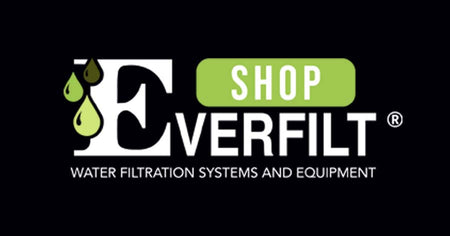
Elevating Agricultural Productivity: 10 Effective Techniques to Enhance Irrigation Efficiency
Efficient irrigation management lies at the core of agricultural success, directly influencing crop yield and resource preservation. To optimize irrigation performance, it's crucial to implement tailored strategies aligned with your farm's requirements. In this article, we'll delve into ten actionable approaches aimed at refining irrigation practices to maximize agricultural output.
Embrace Advanced Irrigation Technology:
Upgrade your irrigation infrastructure with cutting-edge technology such as drip irrigation, precision sprinklers, sand media filters or automated controllers. These innovations ensure precise water delivery, minimize wastage, and adapt seamlessly to diverse crop needs, bolstering efficiency and productivity.
Monitor Soil Moisture Levels:
Regularly assess soil moisture using sensors or probes to accurately gauge crop water requirements. Understanding soil moisture dynamics enables fine-tuning of irrigation schedules, preventing under or overwatering while fostering robust plant growth.
Develop Tailored Irrigation Schedules:
Craft customized irrigation schedules based on factors like crop variety, soil composition, weather patterns, and evapotranspiration rates. Adjust irrigation timing and frequency to match the unique needs of each crop stage, optimizing water usage throughout the growing cycle.
Implement Mulching Techniques:
Deploy mulching methods to conserve soil moisture, mitigate evaporation, and suppress weed proliferation. Mulch serves as a protective barrier, retaining soil moisture and optimizing water utilization by plants. Organic mulches such as straw or compost additionally enhance soil health and fertility.
Ensure Uniform Water Distribution:
Maintain optimal system pressure, address any leaks or obstructions, and optimize nozzle placement to achieve uniform water distribution across fields. Consistent irrigation coverage minimizes water stress, enhances nutrient uptake, and fosters even crop development.
Rotate Crops & Diversify Plantings:
Practice crop rotation and diversify planting arrangements to alleviate water stress and soil depletion. Varied crop species possess distinct water requirements and root structures, facilitating efficient water usage and reducing irrigation demands over time.
Embrace Regenerative Agriculture:
Adopt regenerative agriculture practices like agroforestry and cover cropping to enhance soil vitality and water retention capabilities. Healthy soils enriched with organic matter exhibit improved water retention, curbing irrigation needs and fostering sustainable crop cultivation.
Utilize Water-Efficient Techniques:
Explore water-efficient irrigation methods such as surge or sub-surface drip irrigation to minimize water loss and optimize root-zone delivery. These techniques conserve water, enhance efficiency, and promote environmentally responsible farming practices.
Implement Rainwater Harvesting:
Harness rainwater through efficient harvesting systems and storage facilities integrated into your farm infrastructure. Leveraging rainwater as a supplementary irrigation source reduces dependence on external water sources and mitigates risks associated with water scarcity during dry spells.
Continuously Monitor & Adapt:
Regularly monitor irrigation performance, crop health, and soil conditions, and adapt practices accordingly for optimal efficiency. Utilize data-driven insights and field observations to refine irrigation strategies, ensuring sustained progress and improved outcomes. Elevating irrigation efficiency is paramount for maximizing crop yield and fostering sustainable agriculture. By implementing these ten strategies tailored to your farm's context, you can optimize irrigation practices, conserve resources, and achieve greater agricultural resilience. Embrace innovation, monitor progress diligently, and adapt your approach to realize long-term success in irrigation management.
